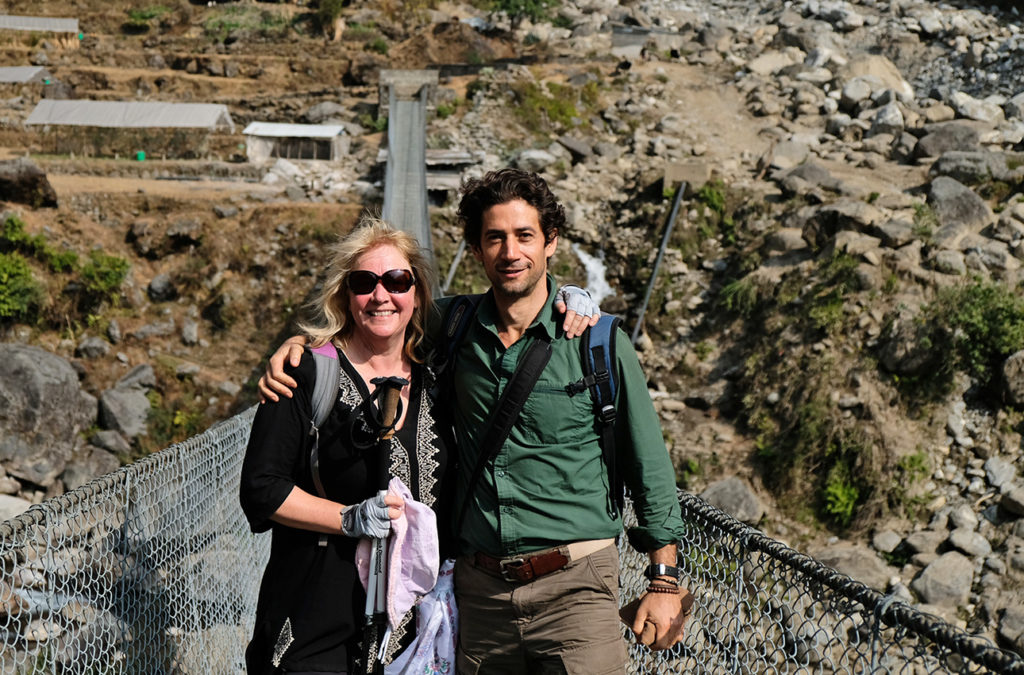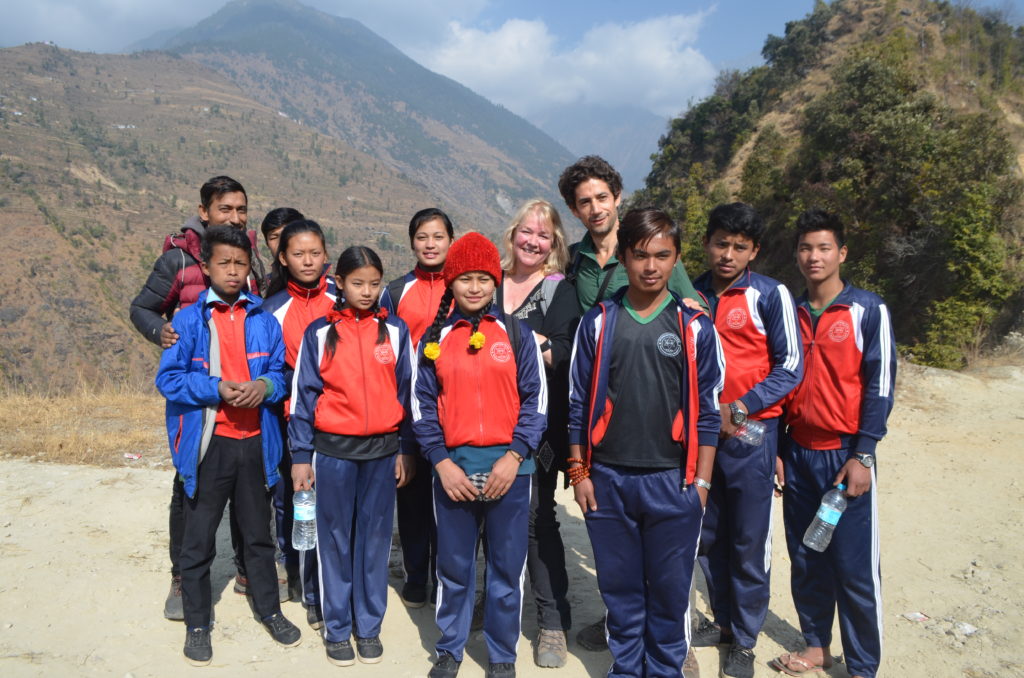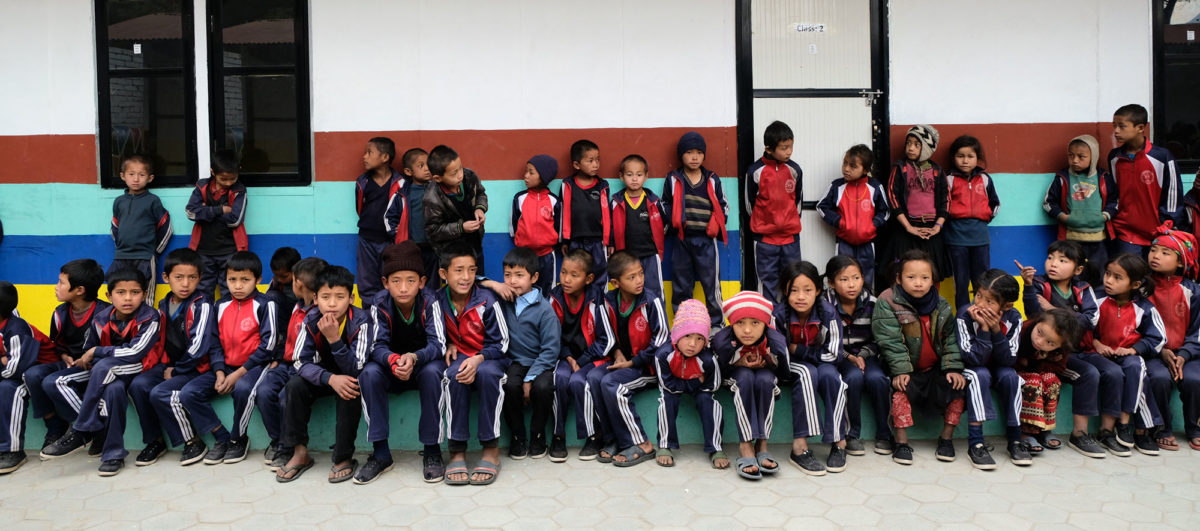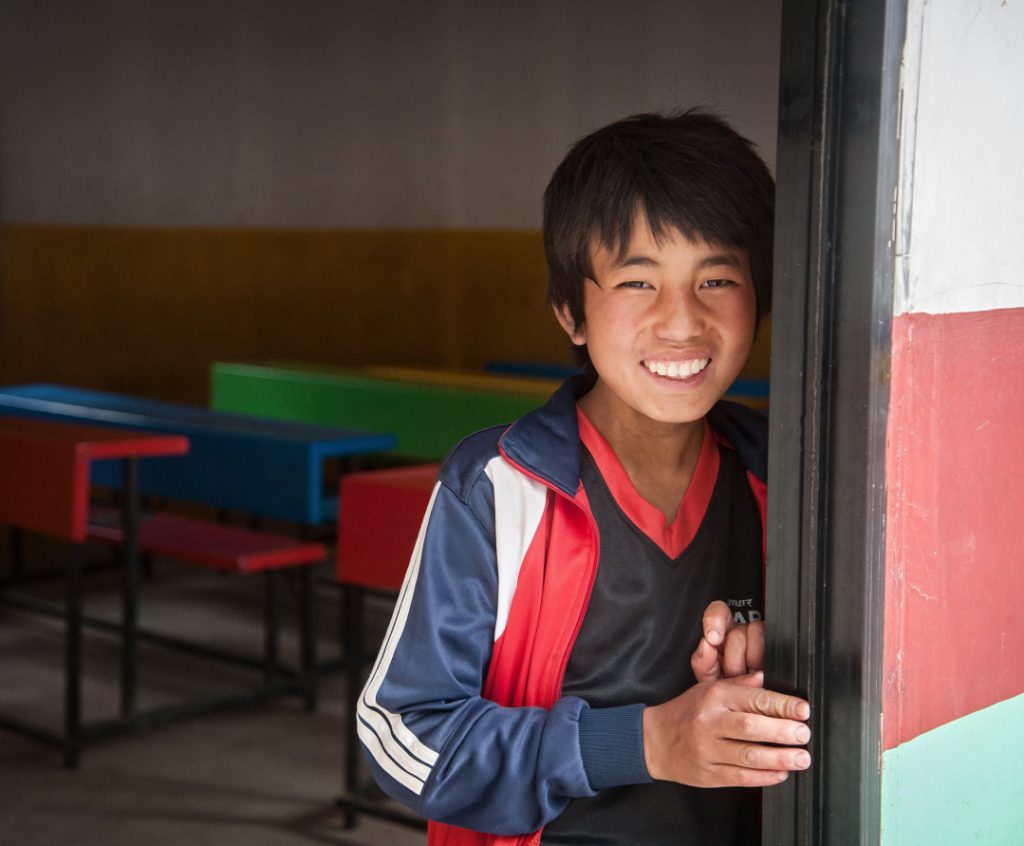Adara and i=Change have been partners in the work of transforming lives since 2013. During this time, i=Change has raised close to A$200,000 to prevent trafficking with education in Nepal, and help tiny babies survive in Uganda. This generosity is made possible thanks to some remarkable Australian retail brands that donate $1 from every sale to Adara. What an incredible testament to the power of small actions making a big difference for the lives of people living in extreme poverty!
For International Women’s Day, i=Change is running their ‘Shop for Change’ campaign, in which brands increase their donations to $3 from every sale for three days. To celebrate this incredible movement of retailers and NGOs standing together to make an even greater impact, we interviewed i=Change’s Founder and CEO, Jeremy Meltzer, about why he started the platform and how he feels about the impact of the partnership with Adara, almost 10 years on.
i=Change has grown rapidly as a platform in the past few years as it reflects the desire of ‘Millennial’ consumers to ‘shop their values’. Can you tell us more about the i=Change model and what drove you to start it?
While living overseas in my early twenties I saw a lot of violence against women. I was shocked and disturbed by its prevalence and wanted to learn about the complex issues surrounding gender-based violence.
I began meeting with NGO leaders and realised how sustainable funding is often a key hurdle to not only delivering greater impact, but tackling the systemic issues that lead to violence against women and girls, and the myriad of challenges that prevent them from realising their full potential.
i=Change was conceived almost 10 years ago on the idea that if we excited enough retailers with a platform that brought them together with NGOs, and the partnerships and technology, then brands would begin giving back to the issues closest to their hearts.
Over the past 10 years we have done just that – made it simple and powerful to give back.
We have partnered with retailers from P.E Nation to National Tiles, to brands small and large, bridging worlds with NGOs that advance the cause of women and girls around the world. We’ve done that because we believe that the violence and shaming, the silencing and marginalising of women and girls on every continent, in every country, represents the greatest and most pervasive form of violence in the world today.
Adara and i=Change have enjoyed many years of deep partnership. What is it about Adara’s work that made you want to get involved?
I met Audette, Adara’s extraordinary Founder and Chair almost 10 years ago. She has always not only inspired, but been very generous with her time and guidance, helping shape my understanding of best-practice international development.
I learnt that Adara’s model delivered some of the highest-quality development work, with their teams in Uganda and Nepal. And so inviting Adara to partner with us – so we could help fund their work – became a natural next step.

We are very proud of our partnership with Adara, and the impact we are helping create.
Shop for Change is such an incredible way for i=Change retailers to increase the impact of their generosity towards NGO partners like Adara. Can you tell us what it is and why it occurs every year around International Women’s Day?
I’ve been to many International Women’s Day breakfasts, and wondered what would change? What could change, when men were not in the room, actively engaged in the conversations we need to have together.
I wanted to put a stake in the ground, to make it simple for Australians to Shop for Change on International Women’s Day, to make a difference with their purchases and raise further much-needed funding.
So this campaign was born from this simple idea. Starting on March 8, participating i=Change brands increase their giving to $3 per sale for 3 days, and focus on their impact. Our goal is to raise $100,000 and impact the lives of up to 25,000 people.
As the empowerment of women and girls is the DNA of i=Change, this campaign is a natural extension for us. Brands are also seeing these types of campaigns drive a significant return, as customers today ‘shop their values’ more than ever, which represents an exciting shift in the consumer landscape.
You had the chance to travel to Nepal in 2019 with Adara to visit some of our project sites. How was this experience, and what did you learn about Adara’s work?
It was remarkable to experience first-hand the work of Adara’s Nepali team, see the complexity and their long-term commitment required to shift community attitudes, belief in the value of educating girls, and what’s required to protect them from trafficking.
Pralhad, Adara’s Nepal Country Director, is an extraordinary individual. Seeing him at work, his genuine commitment and love for the people of his country, was deeply inspiring. Of course, this also represents a key tenet of best-practice development; employing local leaders to lead and inspire community change. That is to say, the Nepalese people know what they need; the local solutions required to solve local problems.
Adara also partners with other local NGOs, who have expertise in different areas of development. This model, where the NGO sector collaborates, is also a great example of the amplifying affect, when organisations work together to create social change.
Adara and i=Change are both examples of how business for purpose can have a transformative impact on the lives of people living in poverty. What role do you think entrepreneurship and new business models play in helping NGOs achieve their mission?
Adara was committed to business-for-purpose before we even had a name for it. Now, unlocking the influence and capital of the for-profit sector, has become an imperative if we are to begin solving the most urgent issues of our time.
There are challenges, of course, as we attempt to work within the system to change the system. I firmly believe in empowering NGOs, who have the deep expertise, structures and people working on the ground, rather than believing we can fix complex issues with capital and great storytelling alone.

If capital can support local knowledge and wisdom, and organisations that have been committed to communities sometimes for decades, we can accelerate the social and environmental change we must see within the next 5 to 10 years.
There is a lot of well-intentioned hubris within the social impact business sector, given how popular it has become. Although it’s important to tread carefully, slowly, listening to those on the front line, rather than believe as entrepreneurs we simply have a better way. Most of the time, this is not the case, and we certainly can sometimes do more harm than good.
At i=Change, we are galvanising Australian retailers and consumers to make every purchase = change. A model born of almost 10 years trial and error, I hope for other entrepreneurs it is a quicker journey, for we are now short on time. By supporting NGOs like Adara, we remain clear on our role – where it begins and ends, and when to stay out of the way so life-changing organisations like Adara can deliver their best work, in this fragile and tumultuous time.
If you are interested in getting involved and using your business to create change with i=Change and Adara, please contact us here.

